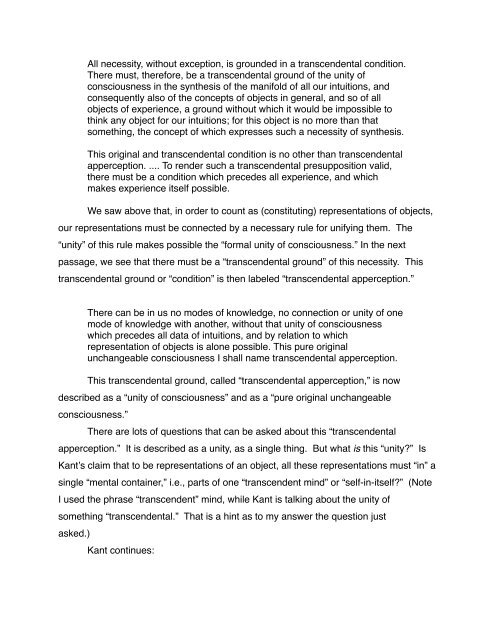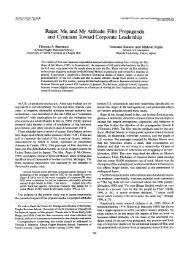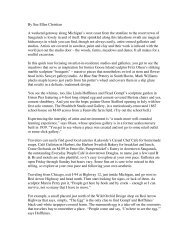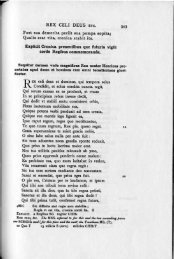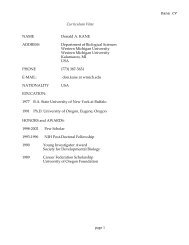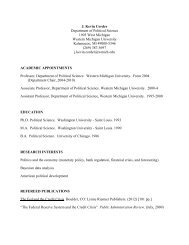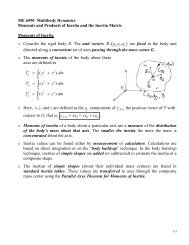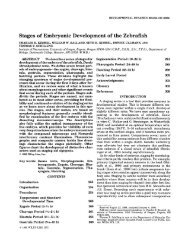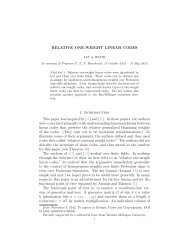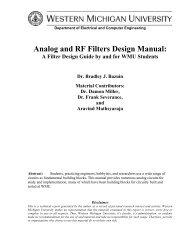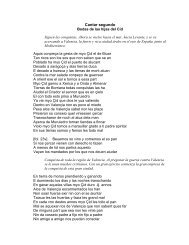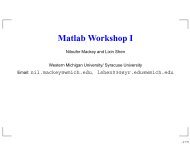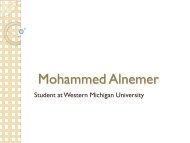Passages (mostly) from A Deduction
Passages (mostly) from A Deduction
Passages (mostly) from A Deduction
Create successful ePaper yourself
Turn your PDF publications into a flip-book with our unique Google optimized e-Paper software.
All necessity, without exception, is grounded in a transcendental condition.<br />
There must, therefore, be a transcendental ground of the unity of<br />
consciousness in the synthesis of the manifold of all our intuitions, and<br />
consequently also of the concepts of objects in general, and so of all<br />
objects of experience, a ground without which it would be impossible to<br />
think any object for our intuitions; for this object is no more than that<br />
something, the concept of which expresses such a necessity of synthesis.<br />
This original and transcendental condition is no other than transcendental<br />
apperception. .... To render such a transcendental presupposition valid,<br />
there must be a condition which precedes all experience, and which<br />
makes experience itself possible.<br />
! We saw above that, in order to count as (constituting) representations of objects,<br />
our representations must be connected by a necessary rule for unifying them. The<br />
“unity” of this rule makes possible the “formal unity of consciousness.” In the next<br />
passage, we see that there must be a “transcendental ground” of this necessity. This<br />
transcendental ground or “condition” is then labeled “transcendental apperception.”<br />
There can be in us no modes of knowledge, no connection or unity of one<br />
mode of knowledge with another, without that unity of consciousness<br />
which precedes all data of intuitions, and by relation to which<br />
representation of objects is alone possible. This pure original<br />
unchangeable consciousness I shall name transcendental apperception.<br />
! This transcendental ground, called “transcendental apperception,” is now<br />
described as a “unity of consciousness” and as a “pure original unchangeable<br />
consciousness.”<br />
! There are lots of questions that can be asked about this “transcendental<br />
apperception.” It is described as a unity, as a single thing. But what is this “unity?” Is<br />
Kant’s claim that to be representations of an object, all these representations must “in” a<br />
single “mental container,” i.e., parts of one “transcendent mind” or “self-in-itself?” (Note<br />
I used the phrase “transcendent” mind, while Kant is talking about the unity of<br />
something “transcendental.” That is a hint as to my answer the question just<br />
asked.)!<br />
! Kant continues:


